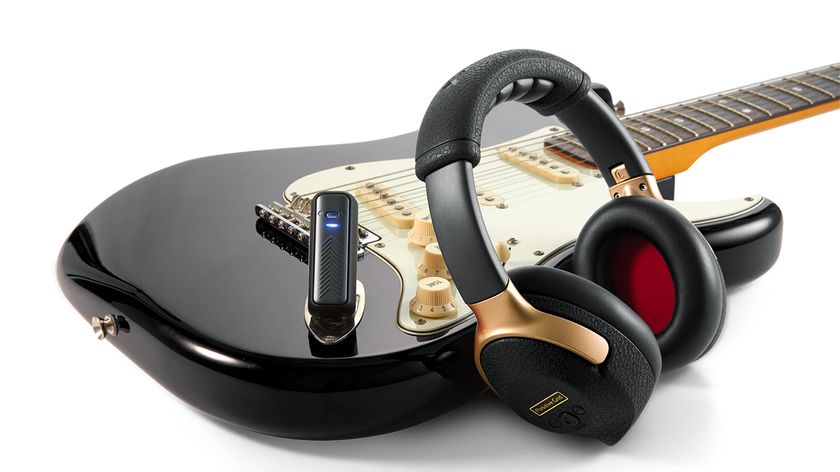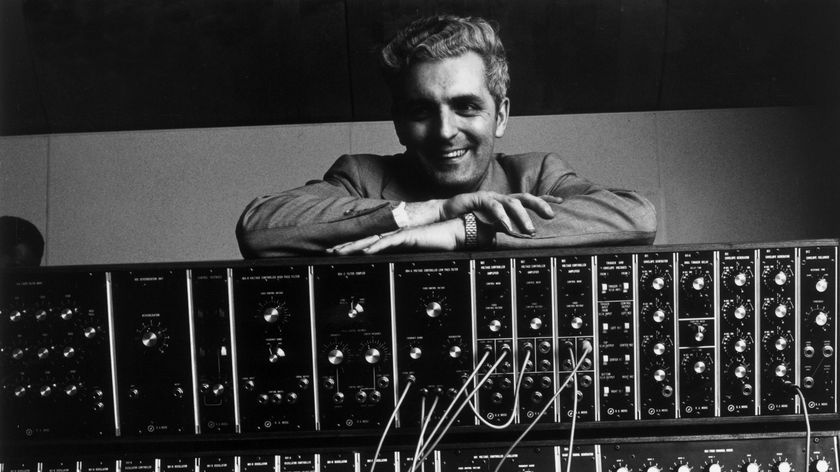Best guitar amps under $/£1,000 in 2025: Heads and combos for rock, metal, blues and beyond
Top choice amps under a grand from Fender, Peavey, Orange and more
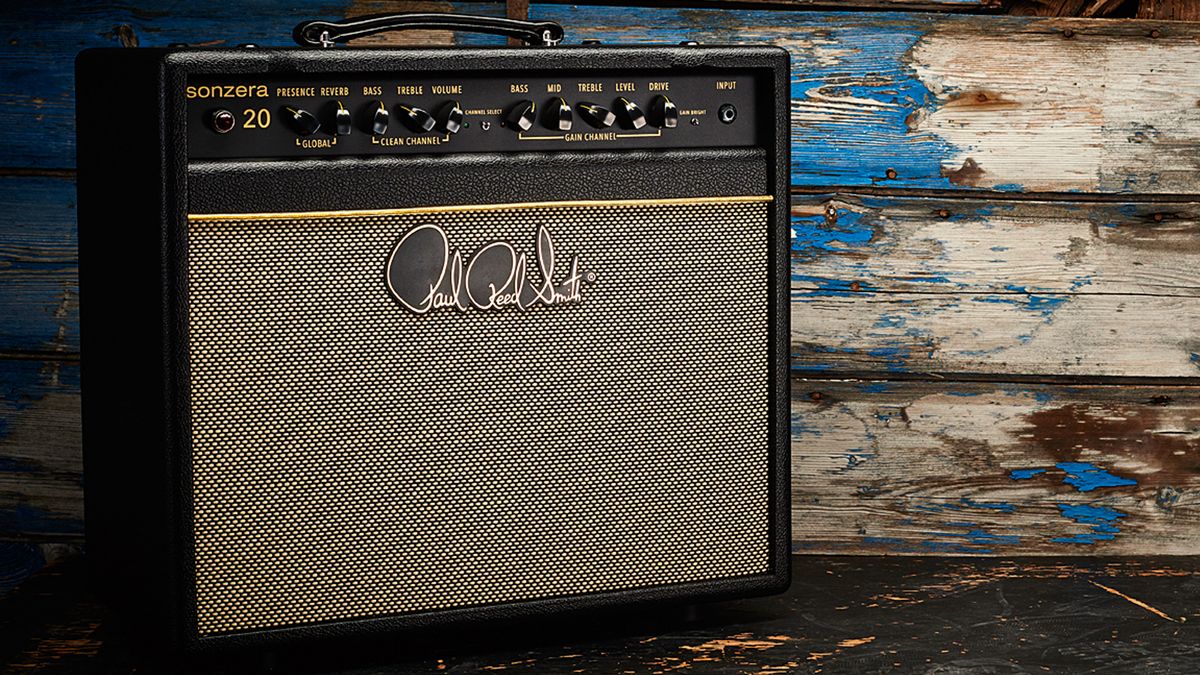
If you’re shopping around for one of the best guitar amps under $/£1,000, you’re starting to enter very serious amp territory. At this end of the spectrum, you can realistically expect a guitar amp to deliver the kind of sound that makes the hairs on your neck stand up. But, seeing as you’re not exactly short of options in this bracket, where do you start?
In this guide we’ll outline the features and functionalities you should be looking out for, as well as offering some recommendations of the best guitar amps under $/£1,000. We’ve got incredible options from Fender, Peavey and Orange, along with some more specialised amps covering specific genres or playing styles.
Best guitar amps under $/£1,000: Our top picks
The right amp for you is the one that gives you the tones you’re looking for, along with maybe some you didn’t even know you needed. For us, the sonic potential of the Orange Rocker 15 is hard to beat. As a neutral base for pedalboards, it’s near flawless, and the classic Orange gain is suitable for almost any genre.
Elsewhere, we’ve been quite taken with the new Fender Blues Junior IV. This newly updated valve combo is better than ever with the updated Celestion A-Type loudspeaker providing a smooth and balanced tone, perfect for gigging and practice.
Best guitar amps under $/£1,000: Product guide
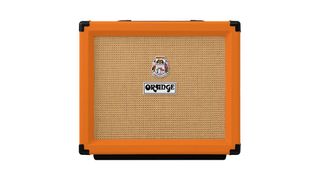
1. Orange Rocker 15
Our expert review:
Specifications
Reasons to buy
Reasons to avoid
The Rocker 15 opens the door to some tantalising tube tone possibilities, delivering that exceptional Orange sound without breaking the bank. It also features a half-power option, turning this humble combo into the ultimate home practice amp.
The enamel control panel follows Orange’s classic 1970s ‘graphics only’ format, using pictograms to describe the control functions. The Dirty channel includes gain, bass, mid, treble and master volume controls, while the Natural clean channel has a single volume control. The Natural channel may only have a single volume control, but it’s perfectly dialled in to flatter practically any guitar, and it sounds beautiful, with a glassy treble giving way to an addictive chime at higher volume levels.
The Dirty channel’s gain control has a very wide range, allowing fine control of moderately driven sounds, with plenty of Dark Terror-approved filth at the top of its travel, making it ideal for everything from classic Brit rock and blues to modern metal.
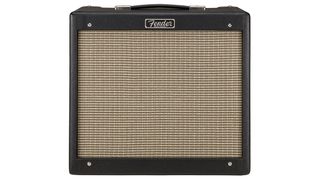
Specifications
Reasons to buy
Reasons to avoid
The Blues Junior's compact dimensions, light weight and pedal-friendly credentials have made it one of the most popular gigging combo amps in the world, but in 2018, Fender updated it to the new Mark IV specification, which features various tweaks, including Celestion’s excellent A-Type loudspeaker. Controls include gain, bass treble and middle, reverb level and master volume, with a small push-button ‘Fat’ switch.
In use, the Junior unleashes a stunning range of Fender tones, from spanky, sparkling cleans, to fat and smooth midrange crunch that’s spot on for blues and classic rock. The Fat switch adds a generous midrange boost and can be remote-controlled from a footswitch for greater versatility, while the improved reverb circuit is very impressive, with no noise and a smooth, warm delay that feels more integral to the overall amp tone, harking back to the best blackface reverbs of the 1960s.
No matter what guitar you use, the Blues Junior flatters single coils and humbuckers alike, not to mention overdrive pedals with plenty of volume. The sounds are top-drawer, comparing well against many so-called boutique amps costing four times the price. Factor in the compact dimensions and light weight, and it’s easy to see why the Blues Junior remains one of the best clean amps in the world.
Read the full Fender Blues Junior IV review
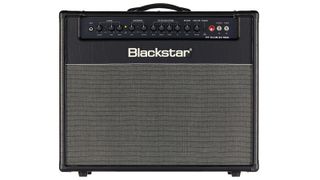
Specifications
Reasons to buy
Reasons to avoid
The control panel of the HT Club 40 has separate channels for clean and overdrive, with two footswitchable voices on each channel. There’s also a new, low-power option, which reduces output from around 40 watts down to just four watts. Global controls include a master volume and level control for the Club’s built-in digital reverb. On the rear panel, you’ll find extension speaker outlets and an effects loop, with new features including a USB recording output together with speaker-emulated line outs on jack and XLR.
The MkII’s clean channel has a completely reworked architecture with two tightly defined voices, best described as classic American and classic British, which can be pre-set on the control panel or footswitched. Although only one button is pressed, lots of changes happen inside, including preamp voicing, EQ and valve gain structure, as well as the power amplifier damping. A similar thing happens on the overdrive channel, with a choice of two voices called ‘classic crunch’ and ‘super- saturated lead’, which can be infinitely tweaked between Brit and USA response using Blackstar’s patented ISF control. Like the clean channel, these voices have been reworked to be richer and more responsive.
In use, the HT Club 40 MkII is jaw-droppingly good – while the MkI version was efficient if a little bland sometimes, the MkII is full of character and attitude, with astonishing tonal depth and response that will have many top-dollar boutique amps struggling to keep up.
Read the full Blackstar HT Club 40 MkII review
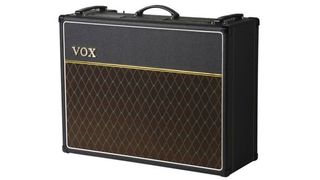
Specifications
Reasons to buy
Reasons to avoid
The AC15 'Twin' retains the all-important dual-EL84, cathode-biased output section of its forebear, but otherwise it's very different. A quick scan across the top panel reveals two inputs for independent access to either normal or top boost channels.
One benefit of the bigger, 2x12 enclosure is that it provides ample room for a full-length reverb tank, housed in the bottom. There's also an in-built tremolo effect, with controls for depth and speed. But the whole point of this amp is the pair of 25-watt Celestion G12M Greenback speakers. They are the speaker of rock in so many cases and while purists might hope for Celestion Blues, they would add a good £300 at least to the price; and the increased power handling of two Greenbacks on the end of just 15 watts is quite a tantalising prospect.
It's fair to say that even with the master volume set-up, the magic doesn't really start happening until the amp's lungs are at least half way open, but happily, that's not far from perfect for many of today's pub and bar gigs – it may even be too much for some. The AC15 'Twin' does sound magnificent when clean, but listen carefully to those amps or this and it's rarely completely undistorted. That harmonically rich drive that was never supposed to be there is the key characteristic that latter day, non-master volume AC users find hardest to replicate.
Read the full Vox AC15C2 review
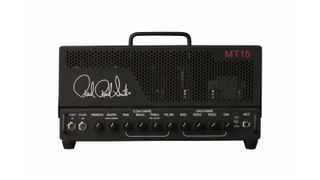
Specifications
Reasons to buy
Reasons to avoid
Mark Tremonti is well-known as an avid gearhead and first impressions of the MT 15 are of a purposeful, working player’s tool with no unnecessary bells or whistles. The MT 15 has clean and lead footswitchable preamp channels, with gain and master volume on the lead channel, and volume on the clean channel. Both channels have their own bass, mid and treble controls with a master presence control and a pull boost on the clean channel to add a mild overdriven edge.
Around the back things are kept simple with a series effects loop plus a half-power switch which drops the MT 15 from 15 watts down to around seven watts. At first glance there’s no channel indicator, however, when powered up all the MT 15’s valves are lit by LEDs which change colour: red for lead, blue for clean – very visible and very cool. The lead channel has no less than five gain stages and the amount of gain and distortion on tap is huge. However, it’s also been carefully sculpted into a stunning barrage of harmonic filth that flatters every note and power chord. Often, very high gain can easily descend into an unpleasant mush that’s perceived more as noise than music, yet the MT 15 manages to avoid this and retains exceptional clarity and articulation, making it one of the best high-gain amps for metal and beyond.
The clean channel offers plenty of headroom to cater for any guitar, while pulling the channel mid-boost function adds a sweet vintage Fender overdrive with a medium-fast response that’s great for country picking or blues.
Read the full PRS MT 15 Mark Tremonti review
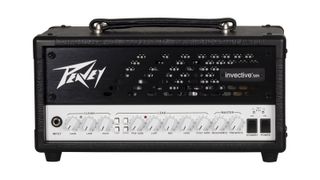
6. Peavey Invective MH
Our expert review:
Specifications
Reasons to buy
Reasons to avoid
Every now and again, a new amp is released that seems to achieve near-universal approval. The Peavey Invective 120, signature of Misha Mansoor, is one such amp, taking the successful formula Peavey had with its 6505 series and bringing it crashing into the 21st century.
And now there’s a small one! Knowing that not everybody requires 120W of screaming high gain power, Peavey has launched a lunchbox variant packing the same feature set, including a much-needed noise gate, into a package that can switch down from 20W to 5W and 1W. As a result, the Peavey Invective MH is much more conducive to bedroom practice sessions and small gigs.
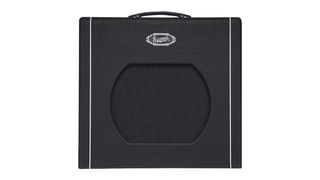
Specifications
Reasons to buy
Reasons to avoid
The Blues King 12 features a lightweight, highly-resonant poplar cabinet shape that’s based on the company's 1950s Comet combo. Behind the control panel there’s a simple valve preamp and a pure class A single-ended output stage; meanwhile grafted into this vintage circuit is a cascaded FET overdrive section that adds independently footswitchable boost and gain for a wide range of distortion effects.
There’s also a traditional spring reverb and a simple series effects loop, adding extra sonic flexibility to this very vintage-looking combo. From biting Chicago blues to smooth jazz, or down-home country to searing modern rock leads, it’s perfect for smaller live gigs, backstage warm-up, home practice and recording studios too, thanks to impressively low noise levels. If you’re in the market for a small, portable and versatile valve 1x12, Supro’s Blues King should be top of your list.
Read the full Supro Blues King 12 review
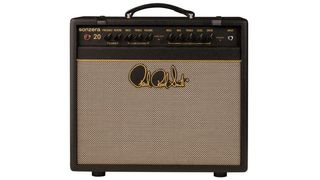
8. PRS Sonzera 20 Combo
Our expert review:
Specifications
Reasons to buy
Reasons to avoid
Sonzera is Brazilian Portuguese for ‘cool/awesome/frightfully good tone’ and the range consists of a 50-watt head and combo, and this slightly more compact Sonzera 20 combo. This is a proper two-channel design with separate clean and gain channels. The gain channel has level and drive controls together with a bright switch and bass, mid and treble tone controls, while the clean channel offers volume, bass and treble controls. There are global controls for presence and the built-in spring reverb.
The robust internals and unfussy appearance give the amp a purposeful stripped-down, ready-to-rock vibe: a player’s tool that’s meant to be taken out and gigged. The clean channel has an addictive ‘live’ quality that’s reminiscent of some of the best small amps from the mid-'60s, while the gain channel can sound vintage or bang up to date, depending on how much gain you dial in. We’re seriously impressed with this wonderful combo, packing plenty of serious guitar tone into a compact, portable package with more than enough volume to handle most small to medium gigs.
Read the full PRS Sonzera 20 Combo review
Best guitar amps under $/£1,000: buying advice
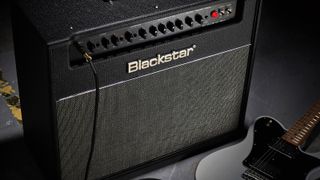
If you’re new to the sub-$/£1k amp club, you’re in for a treat. It’s in this region where you start to see real, quantifiable benefits in both the quality and sounds you can achieve. Typically, most amps at this point will be valve or tube-based, spanning a vast amount of tonal possibilities, although there are increasingly digital and modelling options which offer different benefits. As ever, it pays to have a clear idea of what you need from the amp before you open your wallet.
Build-wise, you’ll find manufacturers and brands start to use better components or construction methods which have a direct impact on tones and durability. You won’t find too many hand-wired options at this price range, but general levels of quality control will be better so you can be confident your new amp will last.
Amps in this area of the market are becoming increasingly compact too. So-called lunchbox amps are hugely popular, as they offer an alternative to those enormous 100W heads which, realistically, are vastly overpowered for most people. There is, however – and always will be – a place for high-powered amp heads, with users rightly believing the adage that it’s better to have the power and not need it, rather than needing it and coming up short.
Put simply, if you’re in the market for one of the best guitar amps under $/£1,000, then the chances are that you’ve developed a clear playing identity, and style, and need an amp to help you realise that vision. Whereas entry-level and practice amps benefit users by offering them a wide selection of tones, in this bracket you’ve likely chosen your route and are in for the long haul. Whatever that sounds like, we have some great recommendations for you.
Find out more about how we test music gear and services at MusicRadar.
Related buyer's guides
MusicRadar's got your back
- 15 best guitar amps: the best amps for beginners and experts
- On a budget? These are 13 best guitar amps under $/£500
- Smaller budget? Try one of the best guitar amps under $300/£300
- Kick off your playing career with the best beginner guitar amps
- Best practice amps for sharpening your guitar chops
- Rock out with our pick of the best Epiphone guitars
- Best acoustic guitar amps for buskers and gigging guitarists
- Need some inspiration? Check out these gifts for guitar players
Get the MusicRadar Newsletter
Want all the hottest music and gear news, reviews, deals, features and more, direct to your inbox? Sign up here.
Chris Corfield is a journalist with over 12 years of experience writing for some of the music world's biggest brands including Orange Amplification, MusicRadar, Guitar World, Total Guitar and Dawsons Music. Chris loves getting nerdy about everything from guitar and bass gear, to synths, microphones, DJ gear and music production hardware.


